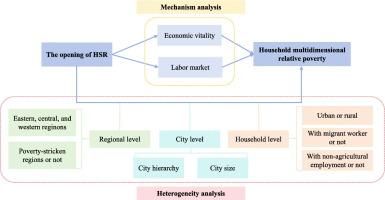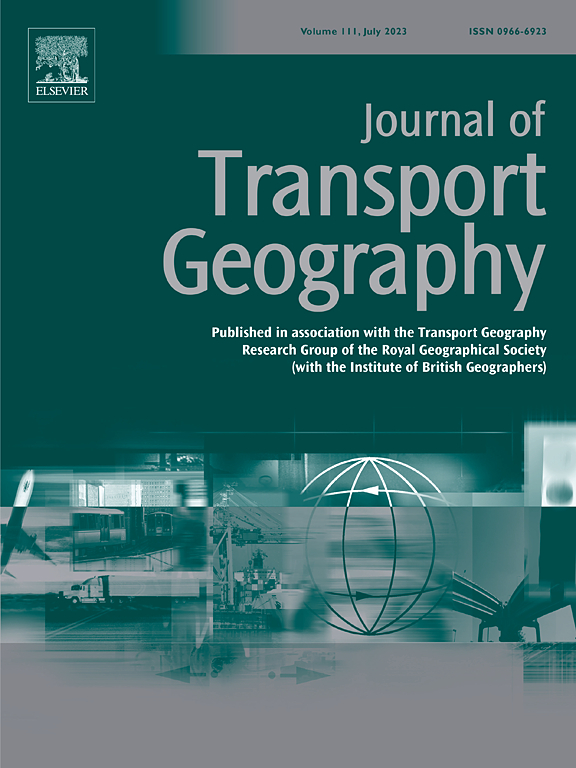高铁开通能否促进家庭多维相对扶贫?
IF 6.3
2区 工程技术
Q1 ECONOMICS
引用次数: 0
摘要
消除贫困至关重要,这与第一项以消除一切形式贫困为重点的可持续发展目标相一致。虽然高速铁路(HSR)对绝对贫困的影响已被记录在案,但其对相对贫困的影响仍未得到充分研究。本文通过准实验设计考察了高铁对中国家庭相对贫困的影响。结果表明:(1)高铁开通显著降低了家庭相对贫困率约1.8%。(2)这种缓解效应主要是通过经济活动和就业机会的扩大来实现的。(3)值得注意的是,高铁的影响在排名较低的小城市和西部地区更为明显。此外,有外来务工人员的家庭或从事非农业部门的家庭从高铁发展中获得的利益更大。我们的研究结果表明,高铁的开通可能有助于中国的相对减贫。政策制定者可以考虑交通基础设施在减轻家庭相对贫困方面的作用,特别是在其他发展中国家的低级别城市、小城市和边缘地区。本文章由计算机程序翻译,如有差异,请以英文原文为准。

Can the opening of high-speed rail promote household multidimensional relative poverty alleviation?
Addressing poverty is paramount, aligning with the first Sustainable Development Goal focused on eradicating poverty in all its forms. While the effects of high-speed rail (HSR) on absolute poverty have been documented, its impact on relative poverty remains understudied. This paper examines the influence of HSR on household relative poverty in China through a quasi-experimental design. The main results are as follows: (1) The opening of HSR significantly reduced the household relative poverty by approximately 1.8 %. (2) This alleviation effect primarily transpires through the expansion of economic activities and employment opportunities. (3) Notably, the impact of HSR is more pronounced in lower-ranked, smaller cities and in the western regions of China. Moreover, households with migrant workers or those engaged in non-agricultural sectors derive greater benefits from HSR developments. Our results suggest that HSR opening could have contributed to China's relative poverty alleviation. Policymakers can consider the role of transportation infrastructure in mitigating household relative poverty, especially for low rank cities, small cities and periphery regions in other developing countries.
求助全文
通过发布文献求助,成功后即可免费获取论文全文。
去求助
来源期刊

Journal of Transport Geography
Multiple-
CiteScore
11.50
自引率
11.50%
发文量
197
期刊介绍:
A major resurgence has occurred in transport geography in the wake of political and policy changes, huge transport infrastructure projects and responses to urban traffic congestion. The Journal of Transport Geography provides a central focus for developments in this rapidly expanding sub-discipline.
 求助内容:
求助内容: 应助结果提醒方式:
应助结果提醒方式:


